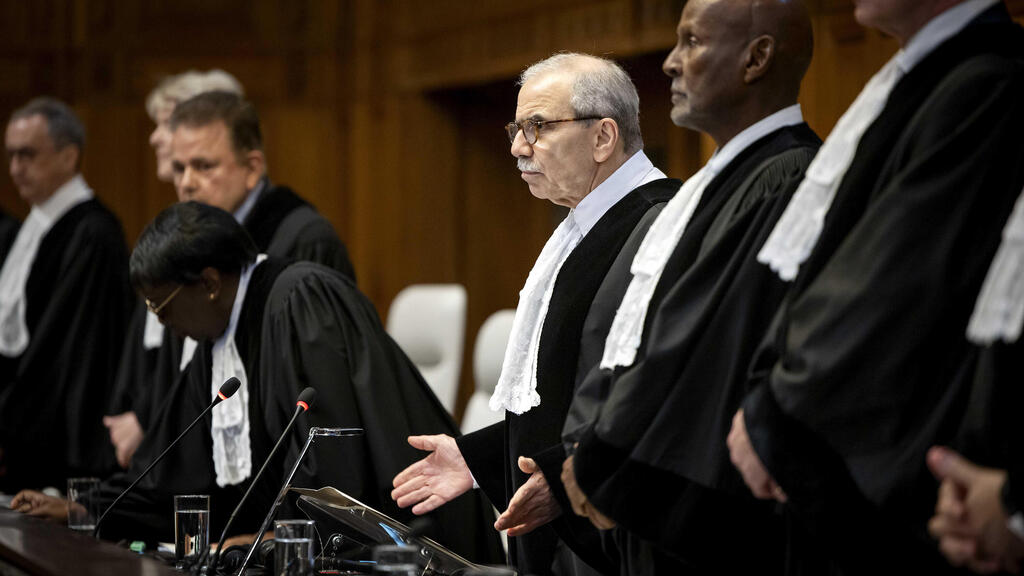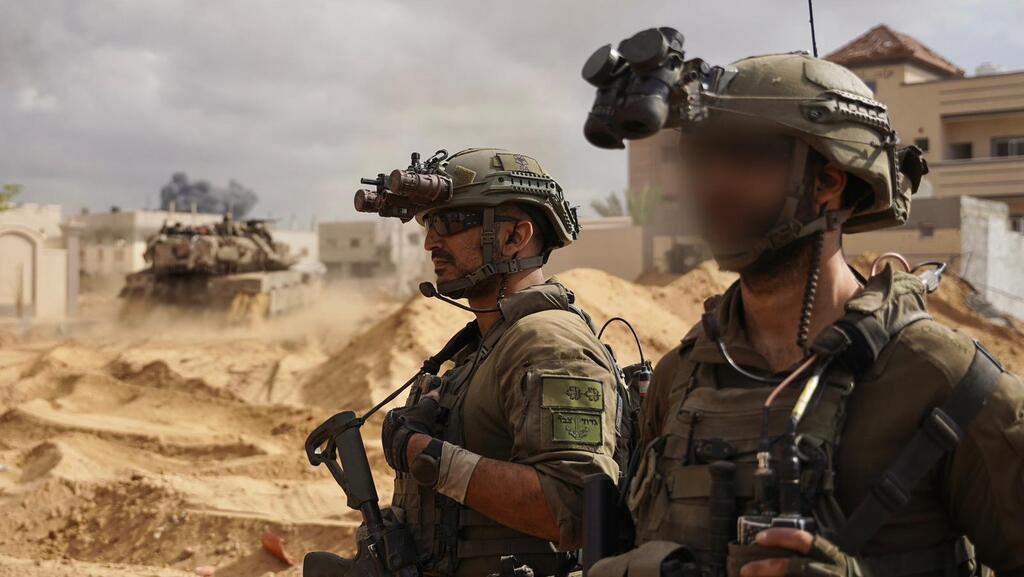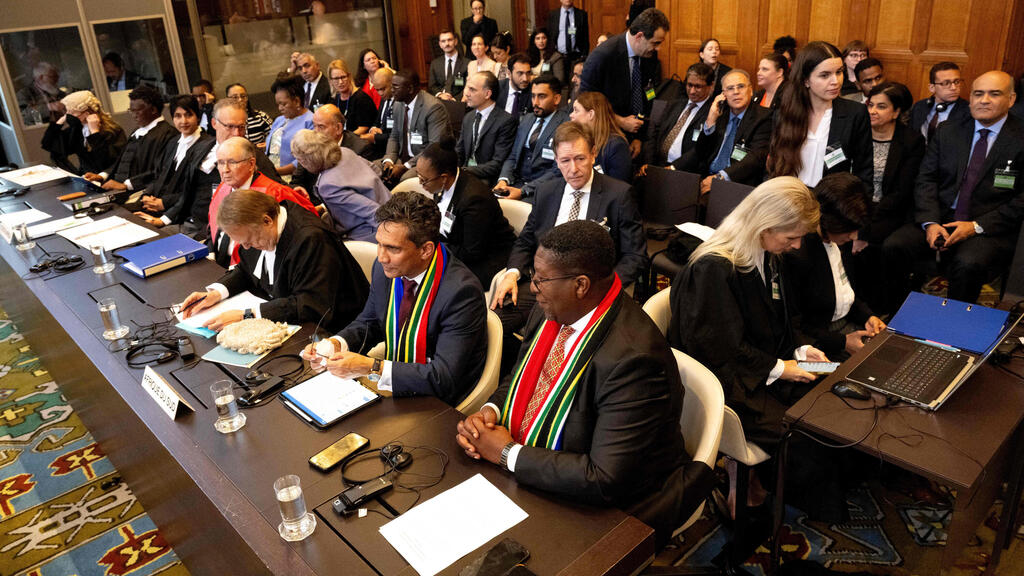Getting your Trinity Audio player ready...
ICJ ruling on Rafah offensive
(Photo: UN WEB TV)
Despite initial headlines declaring the UN's International Court of Justice ordered Israel to immediately halt its offensive in Rafah, the ruling, when examined is quite different.
There is no dispute that the court's decision adds to the international pressure on Israel, which is seen as increasingly isolated. But Israeli officials said late on Saturday that the judges issued a very carefully worded ruling that does not compel the fighting in Rafah to stop nor does it prevent Israel from defending itself.
The panel voted by a majority of 10 to 2, with only the Israeli and Ugandan judges dissenting, that Israel "Immediately halt its military offensive, and any other action in the Rafah Governorate, which may inflict on the Palestinian group in Gaza conditions of life that could bring about its physical destruction in whole or in part."
3 View gallery


International Court of Justice rules on Rafah offensive
( Photo: Koen van Weel / EPA)
In the order, the judges highlight Israel's commitment and obligations under the Convention on the Prevention and Punishment of the Crime of Genocide, that is the basis of South Africa's case against Israel in the international court.
The officials do not view the ruling as preventing IDF's offensive, as long as all measures to prevent harm to civilians are taken, and after Israel's National Security Council and Foreign Ministry have stated that Israel has not and will not create conditions that could bring about the destruction of the civilian Palestinian population in part or in full.
Those officials said the court does not prevent Israel's right to defend itself and free its hostages. "It said genocide is forbidden, and we have no intention of committing genocide. What country would invest so many resources to bring in humanitarian aid, call off attacks and the like, if it intends to commit genocide? We are already doing and will continue to do what the ruling has called for," an official said.
They criticized the coverage of the ruling by world media, saying the narrative presented is wrong and unprofessional and that Israel is trying to deal with that. "Sometimes you just cannot confuse them with the facts," an official said. "There is a false narrative that the ICJ ordered a halt to the fighting in Rafah and that is not the case. If the court would have wanted to say anything else, it would have."
The officials add that the words were carefully chosen, and that Aharon Barak – the Israeli justice who said in his minority opinion that Israel is already fulfilling that obligation – and the judges from Germany, Romania and even South Africa referred to the defensive actions that can be taken.
The court instructed Israel to allow the opening of the Rafah border crossing, although despite it not being mentioned in the ruling it is Egypt currently preventing this. "We are not preventing humanitarian aid from being brought in," an official said, also without mentioning Egypt.
"This is the fourth time South Africa has asked for a complete halt to the war. The wording of the ruling is not accidental," the official said. "When we read the ruling, we see a few things stand out and when we read the judges words individually, they say the same things. South Africa's demands are not answered, for the fourth time. Even the South African judge acknowledges that."
Another order of the ICJ is to allow the UN to investigate the allegations of genocide. Here too, the officials said the court refers to a mandate of authorized UN bodies and an investigation into the allegations of genocide only.
The question now is how Israel will act, amid expectations that South Africa will continue to demand an end to the war. "We believe they will try everything, including in the UN Security Council. We think there are sufficient arguments that we are not in violation of the orders," they said, although perhaps only an American veto may block a more severe response in the Security Council.
South Africa will likely make a fifth appeal to the court. "They will try to challenge us again and again," according to officials. "The IDF operates under legal council and when allegations are made of violations of international war, the military prosecution investigates them. There is a robust system of complementarity."
When asked how Israel agreed that a judge from Lebanon, a country currently involved in fighting against Israel, would head the panel of judges, the officials said any effort to remove him would not have succeeded. Nawaf Salam assumed the position on February 9, after the court began hearing the South African claims.
"Right now, Israel is cooperating with the process, because we chose to be a party to the genocide convention which was written in response to the Holocaust. As the Jewish people, that was one of the first conventions Israel joined, without hesitation. But we see what is transpiring in the international judicial system. It has become another UN deliberation with 60 countries talking about apartheid. If we understand that the Hague has become New York or Geneva, that would be unfortunate, and we may have to consider our options," the officials said.
The ICJ set a schedule for deliberations over the accusations of genocide. South Africa must present its written claims by October 25, 2024 and Israel will have nine months to respond.
Although the ICJ case is separate from the International Criminal Court (ICC), the officials said that the request by chief ICC prosecutor Karim Khan to issue arrest warrants for Prime Minister Benjamin Netanyahu and Defense Minister Yoav Gallant, could impact the ICJ. "These are the same people. Clearly, it is all connected," an official said.
ICC prosecutor announces he seeks warrants for Israeli leaders' arrest
(Photo: ICC )
"Israel now insists that it is in compliance with its commitments to the court. It has many elements of the principle of complementarity including the Supreme Court, the military prosecution, the attorney general and more," he said.







